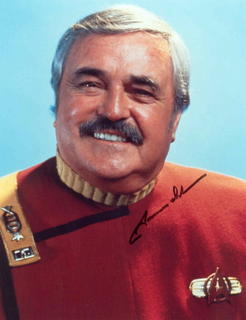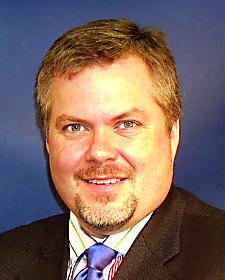Therefore, be it resolved, that The United Methodist Church dedicate itself to a ministry of Christ-like hospitality and compassion to persons of all sexual orientations, and to a vision of unity through openness to the spiritual gifts of all those who have been baptized into the Body of Jesus Christ.
Adopted 2000, The United Methodist Book of Resolutions
There's a scene in the movie,
"Mass Appeal," that lives with me as I serve in ministry.
The story, written by Bill C. Davis, is of a popular parish priest, Father Tim, who fancies his popularity more than preaching the radical nature of the Gospel. Deacon Dolson, an upstart, edgy seminarian with a past that frames the story is all about being radical. Father Tim is charged with softening the rough edges of Deacon Dolson. As you might expect, they each learn something from the other, and, in the end, the deacon teaches the priest something of ultimate meaning.
After Deacon Dolson's first sermon, that started as a warm, "feel good about life" homily, but then gave way all too quickly to one of righteous indignation, Father Tim, unwilling mentor to his assigned apprentice, asks the young deacon about his anger at the congregation:
"Why do you hate them so much?"
Dolson responds, "I don't hate them, I love them because I can see what they can be?"
Father Tim asks, "But what about what they are? Can't you love them for what they are?"
The great irony here is that it is from the mouth of the one more interested in keeping status quo and remaining popular comes the prophetic word that he would have to embrace himself toward his student when truths come out later about who he is and the life he has lived.
These past weeks, the stories of people whose sexual identity has been placed in the forum of the public arena through the work of a "ministry" called Love in Action, has not been lost on me. I serve a congregation that seeks to live out Christian hospitality as expressed by our Lord and confirmed by The United Methodist Church. And as I understand it, that includes people who are gay and lesbian. To be sure, the UMC is conflicted over this issue. I understand that. Our Book of Discipline contains words that are at once prohibitive and welcoming on the question of homosexuality.
Homosexual persons no less than heterosexual persons are individuals of sacred worth. All persons need the ministry and guidance of the church in their struggles for human fulfillment, as well as the spiritual and emotional care of a fellowship that enables reconciling relationships with God, with others, and with self. The United Methodist Church does not condone the practice of homosexuality and consider this practice incompatible with Christian teaching. We affirm that God's grace is available to all, and we will seek to live together in Christian community. We implore families and churches not to reject or condemn lesbian and gay members and friends. We commit ourselves to be in ministry for and with all persons. PAR. 161. II. THE NURTURING COMMUNITY - THE 2004 BOOK OF DISCIPLINE OF THE UNITED METHODIST CHURCH
Some might call it equivocation. Taken together with the resolution that appears at the top of this post, it's easy to think that way. I believe it to be more the honest tension in understanding and living the mandates of the Gospel. I've come to believe the reasons for such conflict have more to do with politics, power and fear of human sexuality than they do the Gospel of our Lord Christ.
Love In Action, a program to "de-gay" people whose identity is a certain way (that is, not the way they think they should be), is, in short, a tragically misguided use of energy. The sad thing is that I believe these folks think they are doing something good.
But what of loving people for who they are, not what you prefer they be?
Granted, we have some words in the Hebrew Bible and Paul's epistles that are prohibitive. But that's a bit of pick and choose, isn't it?
C'mon, you know that we don't practice the Levitical codes as prescribed - and Paul is, well, Paul (to that point, however, I want it clear that Paul's contribution to the Church is often discounted by the progressive end of the church, and it shouldn't be). "Good Christian folks" may say they believe in the Bible from top to bottom (which is to say completely and inerrently), but you start enacting some of that code in your daily life and you'll start singing a different tune. I'm not suggesting we discard biblical passages at our pleasure, but as it is with much of this chronicle of faith, we must assess aspects of it from the standpoint of what was and what is.
Any issue of human sexuality make the Decalogue? Yes - adultery (dealing the breaking covenantal promises); and covetousness (discontent with what you've been entrusted and lusting for something/someone else).
What of the words of Jesus? What did he say about being gay?
Nothing.
Not one thing.
Plenty about false piety, use/misuse of money, failure to keep promises. Plenty still about misuse of power, exploitation of the powerless, especially children - but anything about who you can and cannot love? Not so much.
The Church has come to a place of understanding human sexuality as a gift of God. Granted, it is too often exploited and demeaned (as are far too many of God's gifts).
For Christians, we are guided by that which Jesus said is most important. Framed in the Hebrew Bible and recast as only Jesus could do - "Love God with all you have and are, and love your neighbor as yourself."
That's it. All this focus on gay and straight folks, activitst judges, blind support of a president and a war is so much diversion from this one simple, yet ultimate expectation of God for us. As a teacher of mine once said, "it's not that this Christianity thing is so hard to comprehend, it's just so darned inconvenient."
I'm honored to serve a church that, contrary to some of my own colleagues who suggest otherwise, is not the "gay-Methodist" church. Rather, it's the Church where being gay doesn't matter any more than it does whether you're white, black, Latino, old, young, male or female, Democrat or Republican. We're hardly perfect, and we're struggling to live into the fullness of what Christian hospitality means, but I think it can be said with integrity that our hearts, minds and doors are open.
Brandon, one of my parishioners, a gifted child of God (who sings with a heck of a lot of soul for a white boy!), has offered himself in profound ways to stand against the LIA tide of fear and homophobia to basically say the he is both gay and Christian. I'm proud to be his pastor. I'm proud of him not because he's gay, but because he's come to that place we all seek - to know who we are and whose we are, and from that, be compelled to make a witness in a world of self-righteous judgment and fear, to announce that there are sanctuaries, few though they be, to take in the refugee (by that, I mean those who've been told they no longer have a place to belong).
Despite what he has endured, or maybe because of it, he has truly put God's LOVE through him, IN ACTION.




